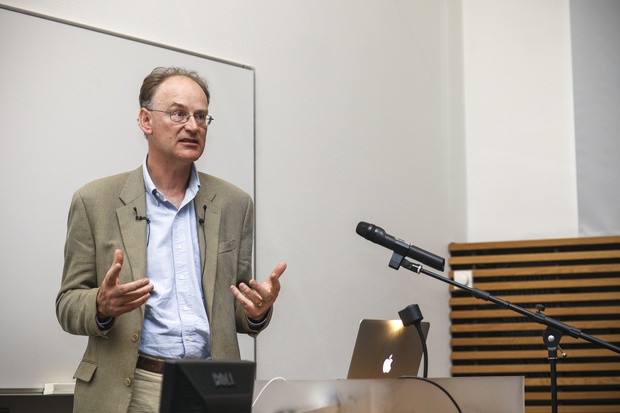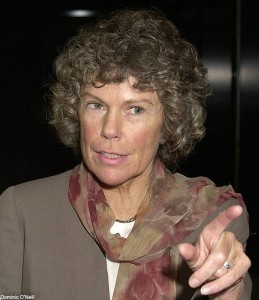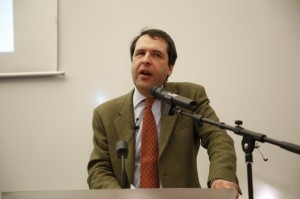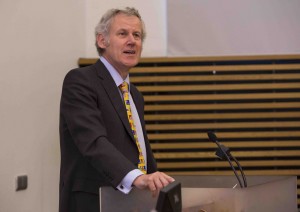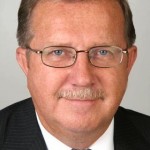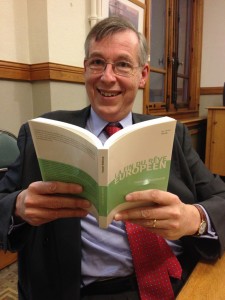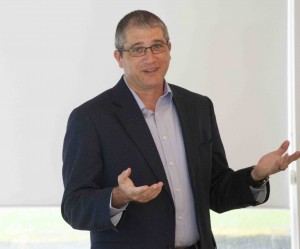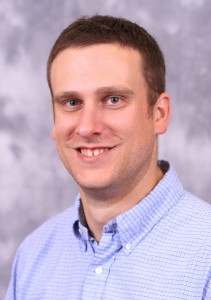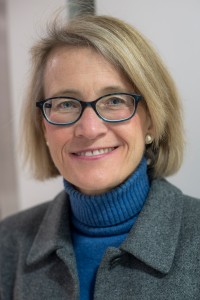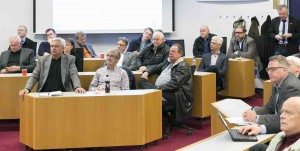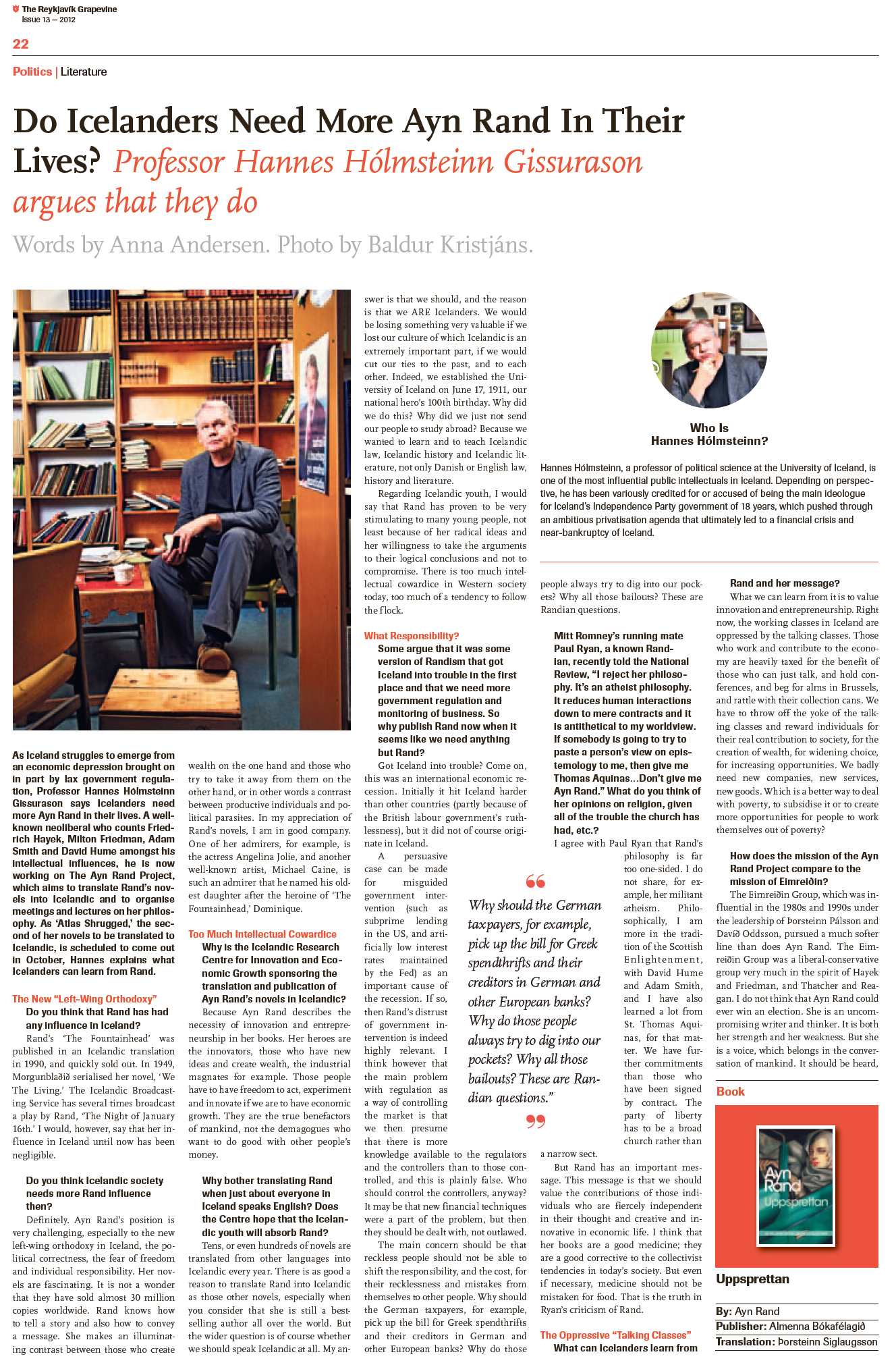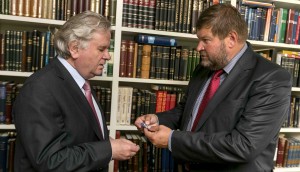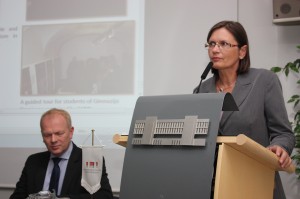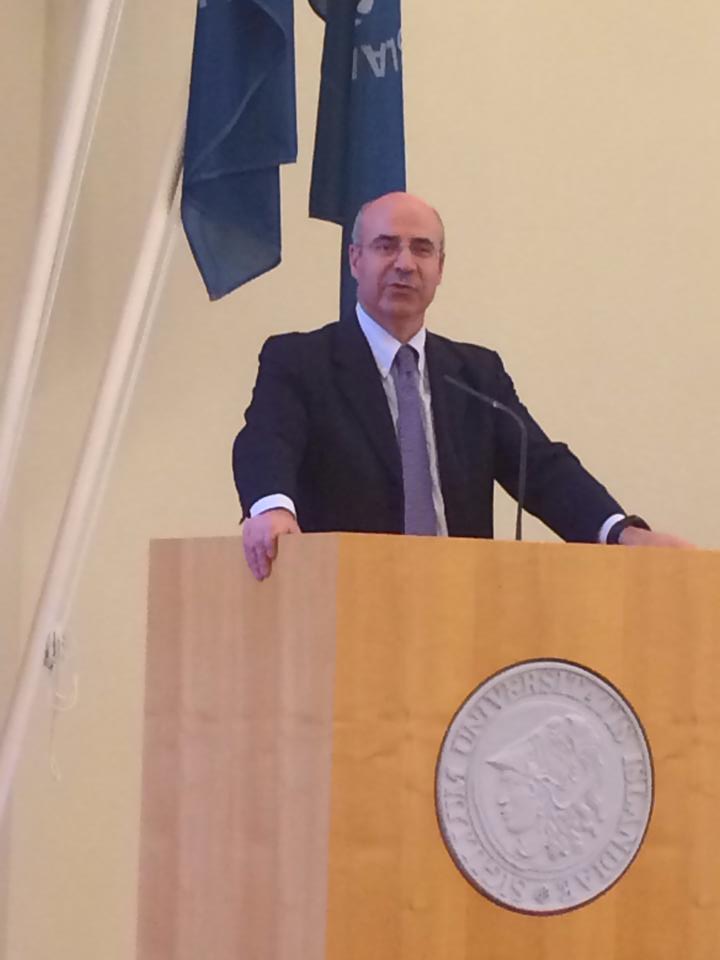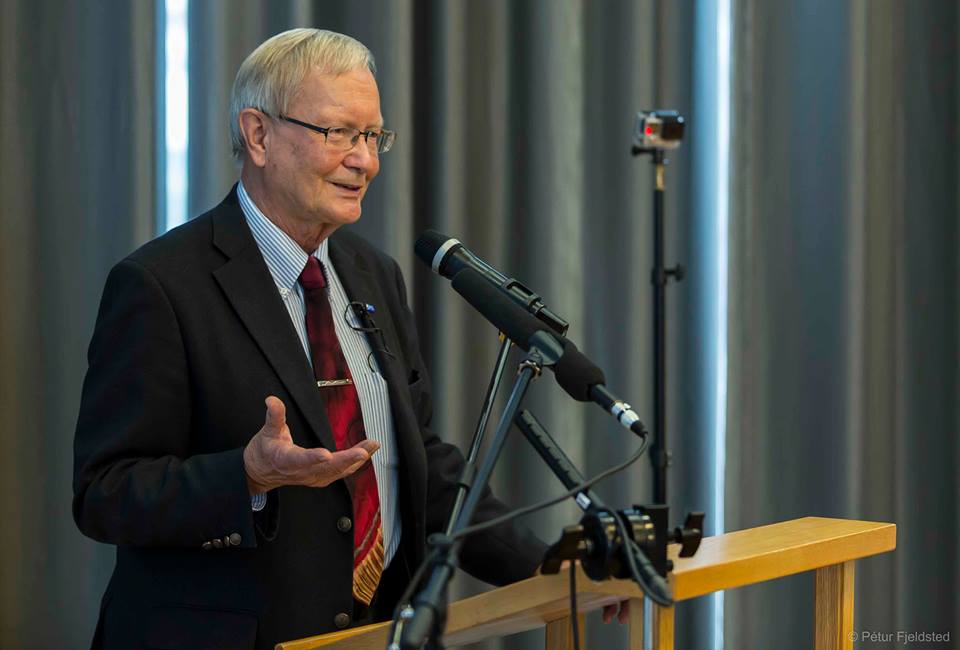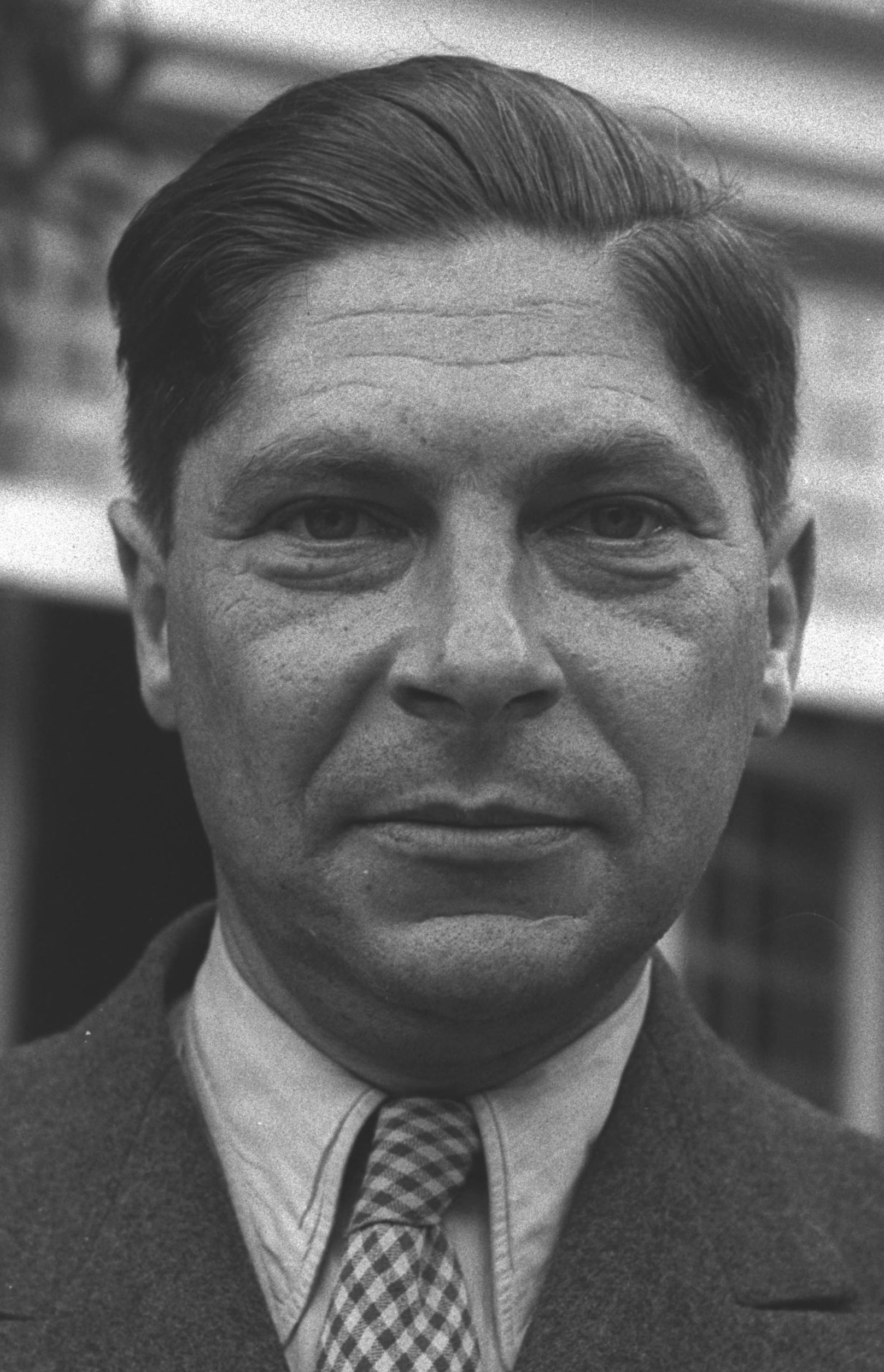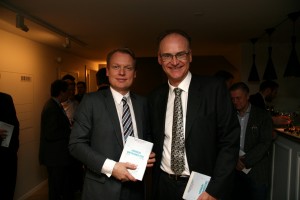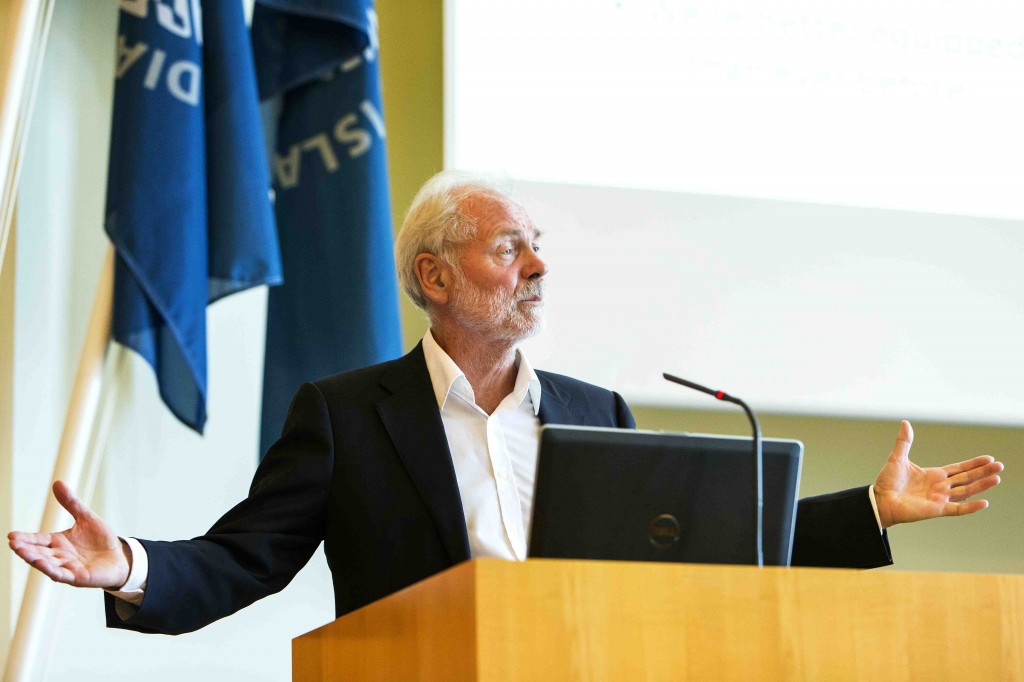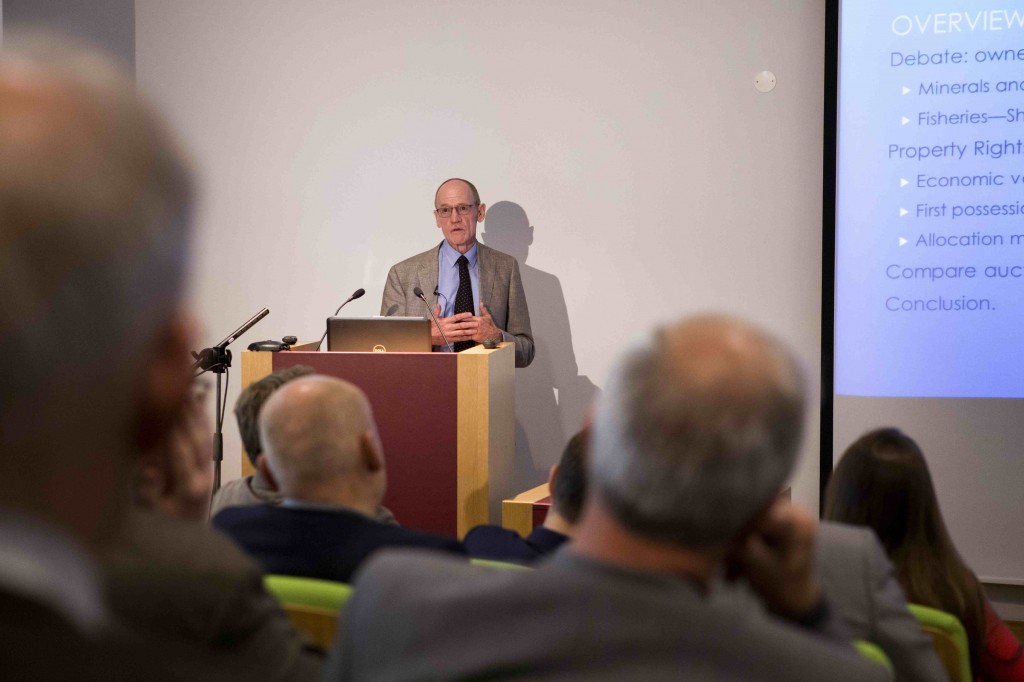- Europe, Iceland and the Future of Capitalism
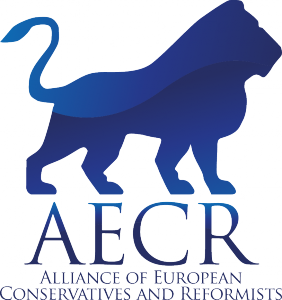 Jointly, RNH and AECR, the Alliance of European Conservatives and Reformists, organise a series of lectures at the University of Iceland and elsewhere, some of which will eventually be published. Icelandic and foreign scholars and writers discuss Iceland’s place in Europe after the international financial crisis of 2007–8: Is capitalism to blame for the crisis? Or misguided government intervention? If capitalism is about “creative destruction”, how can the creative side of it be encouraged? Should Iceland join the European Union? What is the historical nature and significance of socialism, not only national socialism or Nazism, but also the socialism practised in the Soviet Union and its satellite states? Partly, the lecture series is a response to a recent lecture series at the University of Iceland organised by left-wing personalities against “neo-liberalism”, resulting in a collection of essays under the name Eilifdarvelin. Uppgjor vid nyfrjalshyggjuna (The Perpetual Motion Machine. The Anatomy of Neo-liberalism).
Jointly, RNH and AECR, the Alliance of European Conservatives and Reformists, organise a series of lectures at the University of Iceland and elsewhere, some of which will eventually be published. Icelandic and foreign scholars and writers discuss Iceland’s place in Europe after the international financial crisis of 2007–8: Is capitalism to blame for the crisis? Or misguided government intervention? If capitalism is about “creative destruction”, how can the creative side of it be encouraged? Should Iceland join the European Union? What is the historical nature and significance of socialism, not only national socialism or Nazism, but also the socialism practised in the Soviet Union and its satellite states? Partly, the lecture series is a response to a recent lecture series at the University of Iceland organised by left-wing personalities against “neo-liberalism”, resulting in a collection of essays under the name Eilifdarvelin. Uppgjor vid nyfrjalshyggjuna (The Perpetual Motion Machine. The Anatomy of Neo-liberalism).In the first year, the first speaker in the series was the English best-selling writer Dr. Matt Ridley 27 July 2012 who spoke about the reasons for being optimistic about the future. The next speaker was Dr. Michael Walker of the Canadian Fraser Institute 17 September 2012, on the international index of economic freedom for 2010: Under the 2009–2013 left-wing government, economic freedom in Iceland decreased significantly. Then six speakers and several commentators participated in an international conference on “Fisheries: sustainable and profitable” 6 October 2012: Professors Thrainn Eggertsson and Ragnar Arnason of the University of Iceland, Professor Rognvaldur Hannesson of the Norwegian School of Business Administration, Arni Mathiesen, Director of the Fisheries Department at FAO, Dr. Gunnar Haraldsson, Senior Fisheries Expert at the OECD, and Michael Arbuckle, Senior Fisheries Expert at the World Bank. Also, Dr. Asgeir Jonsson, Assistant Professor at the University of Iceland, and Dr. Michael De Alessi were commentators.
The next speakers in the series were: RNH Academic Director, Professor Hannes H. Gissurarson, of the University of Iceland 9 October 2012 on “Poverty in Iceland, 1995–2004”; Norwegian journalist Jan-Arild Snoen 15 October 2012 on the media bias in Europe against the US; Professor Douglas Rasmussen, of St. John’s University, New York, 26 October 2012 on Ayn Rand’s message for the 21st Century, on the occasion of the publication of an Icelandic translation of Atlas Shrugged by Rand; Mats Persson of Open Europe 12 November 2012, about trends in Europe; Dr. Daniel Mitchell of Cato Institute, Washington DC, 16 November 2012, on the case for the flat tax; Professor Hannes H. Gissurarson 17 November 2012, on “Churchill as a Statesman”; and Kate Hoey, MP for the London district of Vauxhall, 19 November 2012, on “The Dangers of joining the EU”.
In the second year, the first speaker in the series was Dr. Nils Karlson of Ratio Institute in Stockholm who described 14 January 2013 “The New Swedish Model”. The second speaker was Professor Hannes H. Gissurarson 19 February 2013 on “Liberty, Crisis and Capitalism”. He was followed by Professor Phil Booth 13 March 2013 on the “Causes of the Financial Crisis”, and Marta Andreasen, former Chief Accounting Officer and Budget Execution Director at the European Commission, 30 August 2013 on “Holding the EU to Account”. Matthew Elliott from the British Taxpayers’ Union talked 20 September 2013 about how the Icelanders could fight the encroachment of the state.
Precisely five years after the 2008 bank collapse, 7 October 2013, RNH organised an international conference in Reykjavik on the 2007–2009 financial crisis and the Icelandic case, with papers given by Dr. Eamonn Butler from the Adam Smith Institute and Dr. Pythagoras Petratos from the Said School of Business at Oxford University and Dr. Asgeir Jonsson and Professor Hannes H. Gissurarson from the University of Iceland. On 13 october 2013, the late Mrs. Margaret Thatcher’s birthday, her senior adviser John O’Sullivan gave a talk on “The Real Iron Lady”. On 14 October 2013, RNH organised an international conference on “the quota system and a special tax on fisheries”, with Professor Ralph Townsend of the University of Maine making the case for self-governance in fisheries, Professor Ragnar Arnason arguing against a special tax on the Icelandic fisheries, Dr. Gunnar Haraldsson, director of the Economic Research Institute of the University of Iceland, discussing the CFP, Common Fisheries Policy, of the EU, and Professor Hannes H. Gissurarson analysing moral and political arguments for the initial allocation of property rights to natural resources.
The next speakers in the project were Jon Steinar Gunnlaugsson, former Supreme Court Judge, and Helgi A. Gretarsson, Associate Professor of Law at the University of Iceland, who debated 29 October 2013 whether or not the special tax on the Icelandic fisheries is constitutional. Then, Dr. Daniel Mitchell of Cato Institute shared his thoughts 4 November 2013 on how to starve the beast, the modern Leviathan. The academic director of RNH, Professor Hannes H. Gissurarson, also kept a busy schedule in Iceland and abroad in 2013, giving lectures in Porto Alegre 9 April 2013, Bifrost 3 May, Vilnius 12 September, Cambridge 22 September, Stockholm 29 October and Budapest 15 November on the international financial crisis and the Icelandic bank collapse.
The project continued in 2014. The English writer and commentator on current affairs, Dr. Richard North, 30 January 2014 explored choices facing the United Kingdom upon possibly leaving the EU, one of them being membership in the EEA, European Economic Area, with Norway, Iceland and Liechtenstein. One of Europe’s most distinguished experts on collective security, François Heisbourg, discussed 5 April 2014 whether the euro would bring the EU down, requiring much tighter integration than the European countries were prepared for. Professor Hannes H. Gissurarson read papers on various aspects of the 2008 Icelandic bank collapse in Reykjavik 14 March 2014, in Berlin 15 March, in Torshavn in the Faroe Islands 22 March and in Las Vegas 14 April. He also lectured on Liberty and the Internet in Porto Alegre in Brazil 25 May and in Curitiba 31 May.
In July 2014, a century had passed since the outbreak of the First World War, which almost led to the collapse of the liberal order. On 28 July 2014, Professor Robert Lawson, one of the authors of the Index of Economic Freedom, spoke on the problems and results of measuring economic freedom. In the summer, autumn an early winter of 2014, Professor Hannes H. Gissurarson gave several papers in Iceland and abroad, sponsored by RNH: 12–15 August, he read three papers at the annual meeting of NOPSA, the Nordic Political Science Association, in Gothenburg in Sweden, on the 2008–2013 Icesave dispute, on the 2008 Icelandic bank collapse, and on the Icelandic welfare state; 10 October he read a paper on how to develop F. A. Hayek’s theory of spontaneous evolution at an international conference of the Economic Freedom Institute at Manhattanville College in New York; 18 October he gave a talk criticizing Thomas Piketty’s theory of income distribution at an international conference of the European Students for Liberty in Bergen in Norway; 31 October he read a paper at a conference in Reykjavik on possible explanations for the hostility of the British government towards Iceland during the 2008 financial crisis; 27 November he lectured at the Institute of Economic Affairs in London on the topic: “Why was Iceland left out in the cold? And kept there?”
On 21 August 2014, the Public Book Club (Almenna bokafelagid, AB) held a reception jointly with RNH to celebrate the publication of a collection of papers on income distribution and welfare, edited by Professors Ragnar Arnason and Birgir Thor Runolfsson, who both serve on the RNH Academic Council. Subsequently, on 24 October 2014, an RNH seminar was held on the subject of income distribution and taxes where the speakers were Professor Corbett Grainger on arguments against resource taxes and for private property rights to resources, Professor Ragnar Arnason on errors in the measurements of income distribution and Professor Hannes H. Gissurarson on flaws in Thomas Piketty’s case for global redistribution.
On 30 October 2014, when the Public Book Club published a translation of Matt Ridley’s The Rational Optimist, Ridley visited Iceland and gave a talk. On that occasion, Professor Thrainn Eggertsson discussed Ridley’s point of view and Professor Birgir Thor Runolfsson analysed an example of the rational management of natural resources: the system of ITQs (individual transferable quotas) in the Icelandic fisheries. RNH was one of the sponsors of an international conference 15 November 2014 organised by the European Students for Liberty. Two members of the RNH Academic Council spoke, Professor Birgir Thor Runolfsson on the Icelandic Commonwealth and Professor Hannes H. Gissurarson on Piketty’s theory of capital in the 21st century. RNH also continued to promote the works of Ayn Rand: Professor Tara Smith gave a lecture 24 November on Rand’s moral theory, in particular her account of the liberating force of money.
The project continued in 2015. Professor Gudni Johannesson of the University of Iceland and Professor Hannes H. Gissurarson spoke 14 January 2015 at an RNH seminar in Reykjavik on “New Evidence on the Bank Collapse”. Professor Gissurarson read several papers to conferences in early 2015: 9 april he gave a talk on Swedish-Icelandic relationships 9 April 2015 to a breakfast meeting at the think tank Ratio in Stockholm in Sweden; 11 April he provided personal recollections of three modern masters, Friedrich A. von Hayek, Karl R. Popper and Milton Friedman, at the annual conference of the European Students for Liberty in Berlin in Germany; 21 April, he spoke about the sometimes misguided sale of Icelandic assets abroad after the 2008 bank collapse 21 April 2015 at a conference of the Institute of Business Research at the University of Iceland; 30 April, he gave a talk on Piketty’s challenge to capitalism at the Business School in Tallinn.
- The Ayn Rand Project
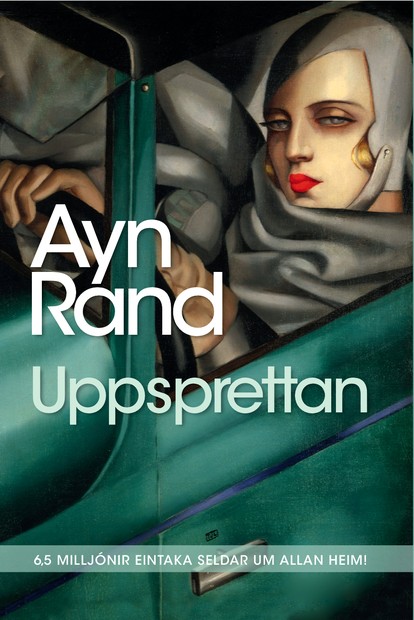 RNH is supporting the Icelandic Ayn Rand Project of the publishing house Almenna bokafelagid, AB. In November 2011, Rand’s Fountainhead (1943) was published in Icelandic in philosopher Thorsteinn Siglaugsson’s revised translation: It had originally appeared in Icelandic in 1990, but quickly sold out. The Icelandic title is Uppsprettan. In a 1949 film adaptation of the novel, Gary Cooper played the main hero, architect Howard Roark, who struggles to maintain his independence and integrity against both the moguls and the masses. Roark’s celebrated speech before the court can be viewed here. Dr. Tom Palmer of Cato Institute in Washington DC gave a talk 28 November 2011 on “Rand and 21st Century Individualism”. The same night, Dr. Palmer was keynote speaker at a very successful “Freedom Dinner” at Hotel Holt where young entrepreneurs and intellectuals celebrated, under the guidance of asset manager Gisli Hauksson, the Chairman of the RNH Board of Directors.
RNH is supporting the Icelandic Ayn Rand Project of the publishing house Almenna bokafelagid, AB. In November 2011, Rand’s Fountainhead (1943) was published in Icelandic in philosopher Thorsteinn Siglaugsson’s revised translation: It had originally appeared in Icelandic in 1990, but quickly sold out. The Icelandic title is Uppsprettan. In a 1949 film adaptation of the novel, Gary Cooper played the main hero, architect Howard Roark, who struggles to maintain his independence and integrity against both the moguls and the masses. Roark’s celebrated speech before the court can be viewed here. Dr. Tom Palmer of Cato Institute in Washington DC gave a talk 28 November 2011 on “Rand and 21st Century Individualism”. The same night, Dr. Palmer was keynote speaker at a very successful “Freedom Dinner” at Hotel Holt where young entrepreneurs and intellectuals celebrated, under the guidance of asset manager Gisli Hauksson, the Chairman of the RNH Board of Directors.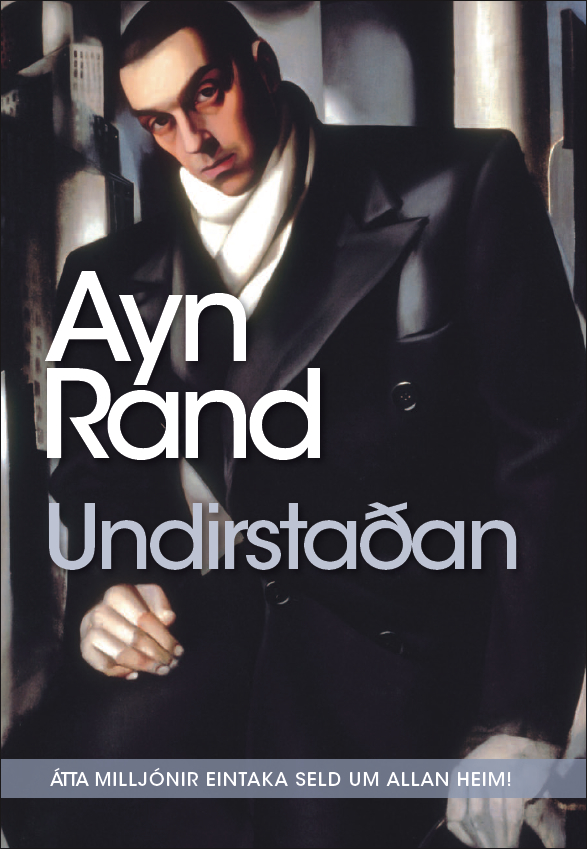 In October 2012, Almenna bokafelagid published Rand’s best-selling novel Atlas Shrugged (1957), translated by Elin Gudmundsdottir. The Icelandic title is Undirstadan. The question posed in the book is: What happens if all the creative people in a society go on strike? What is the difference between productive persons and political parasites? Who is John Galt? Rand’s novel is also a steaming love story, with Dagny Taggart, an independent and courageous railroad manageress, dealing with Francisco d’Anconia, her childhood sweetheart and an Argentine copper mines heir, Hank Rearden, a married self-made steel magnate, and the mysterious John Galt, with a lot of other colourful characters participating in the slowly unfolding drama, such as pirate Ragnar Danneskjold, a conscious counterpart to the mythical Robin Hood.
In October 2012, Almenna bokafelagid published Rand’s best-selling novel Atlas Shrugged (1957), translated by Elin Gudmundsdottir. The Icelandic title is Undirstadan. The question posed in the book is: What happens if all the creative people in a society go on strike? What is the difference between productive persons and political parasites? Who is John Galt? Rand’s novel is also a steaming love story, with Dagny Taggart, an independent and courageous railroad manageress, dealing with Francisco d’Anconia, her childhood sweetheart and an Argentine copper mines heir, Hank Rearden, a married self-made steel magnate, and the mysterious John Galt, with a lot of other colourful characters participating in the slowly unfolding drama, such as pirate Ragnar Danneskjold, a conscious counterpart to the mythical Robin Hood. American philosophy professor Douglas Rasmussen gave a lecture on Ayn Rand and the moral case for individualism 26 October 2012. On that occasion, lawyer and philosopher Asgeir Johannesson, chairman of the Icelandic Ayn Rand society, also made a few remarks. As Rand’s account of individuality, entrepreneurship and creativity is highly relevant to the choices the Icelanders face in the near future between different economic systems, Rasmussen’s lecture formed a part of the series of lectures on “Europe, Iceland and the Future of Capitalism” which RNH is organising jointly with AECR, the Alliance of European Conservatives and Reformists. The same evening, Rasmussen was the main speaker of an elegant and well-attended RNH “Freedom Dinner” at Hotel Holt, directed by Gisli Hauksson.
American philosophy professor Douglas Rasmussen gave a lecture on Ayn Rand and the moral case for individualism 26 October 2012. On that occasion, lawyer and philosopher Asgeir Johannesson, chairman of the Icelandic Ayn Rand society, also made a few remarks. As Rand’s account of individuality, entrepreneurship and creativity is highly relevant to the choices the Icelanders face in the near future between different economic systems, Rasmussen’s lecture formed a part of the series of lectures on “Europe, Iceland and the Future of Capitalism” which RNH is organising jointly with AECR, the Alliance of European Conservatives and Reformists. The same evening, Rasmussen was the main speaker of an elegant and well-attended RNH “Freedom Dinner” at Hotel Holt, directed by Gisli Hauksson.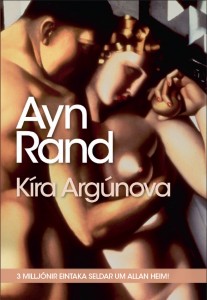 On 4 November 2013, Almenna bokafelagid published We the Living (1936) in a translation, originally serialized in the daily Morgunbladid in 1949. The translator is not known, but the work was thoroughly revised for the publication. The Icelandic title is Kira Argunova, after the main hero of Rand’s semi-autobiographical novel taking place in the early days of communist rule in Russia. Kira is a courageous and independent young woman finding the new regime stifling. Torn between two lovers, she decides to try to escape. Radio host Frosti Logason edited the book, with philosopher Asgeir Johannesson writing a postscript about Rand, her life and works. Dr. Yaron Brook, director of the Ayn Rand Institute in California, introduced the book in an eloquant speech at a RNH meeting at the University of Iceland. The publication of the book and the meeting with Dr. Brook formed a part of the project “Europe of the Victims” organised jointly by RNH and AECR, the Alliance of European Conservatives and Reformists.
On 4 November 2013, Almenna bokafelagid published We the Living (1936) in a translation, originally serialized in the daily Morgunbladid in 1949. The translator is not known, but the work was thoroughly revised for the publication. The Icelandic title is Kira Argunova, after the main hero of Rand’s semi-autobiographical novel taking place in the early days of communist rule in Russia. Kira is a courageous and independent young woman finding the new regime stifling. Torn between two lovers, she decides to try to escape. Radio host Frosti Logason edited the book, with philosopher Asgeir Johannesson writing a postscript about Rand, her life and works. Dr. Yaron Brook, director of the Ayn Rand Institute in California, introduced the book in an eloquant speech at a RNH meeting at the University of Iceland. The publication of the book and the meeting with Dr. Brook formed a part of the project “Europe of the Victims” organised jointly by RNH and AECR, the Alliance of European Conservatives and Reformists.On 24 November 2014, Dr. Tara Smith of the Ayn Rand Institute gave a lecture about Ayn Rand’s moral case for capitalism at the University of Iceland, especially the use of money as encapsulated choice. On 5 November 2015, Professor Hannes H. Gissurarson gave a lecture on Ayn Rand, concentrating on the contrast between producers and parasites in her works.
Possibly, at a later date, two other works by Ayn Rand which already have been translated will be brought out: Rand’s play, Night of January 16th, has been broadcast several times by the Icelandic Broadcasting Corporation, in a translation by the distinguished Icelandic translator and poet Magnus Asgeirsson; Rand’s short dystopian novel, Anthem, has been translated by Elin Gudmundsdottir. It is also hoped that at a later date, short films or Youtube videos in Icelandic, directed at young people, might be produced on Ayn Rand’s message and her relevance to Icelanders.
Russian-born Ayn Rand, at one time a scriptwriter for big Hollywood studios, is one of the most distinct and independent American writers of the 20th Century. Some television interviews with her are accessible on the Internet, for example this one by Mike Wallace in 1959, this one by Johnny Carson in 1967 and this one by Phil Donahue in 1979. She is by far the most influential female philosopher of all times.
The front covers of the Icelandic editions of Rand’s three novels are decorated with paintings by the famous Polish artist Tamara de Lempicka. In August 2012, Professor Hannes H. Gissurarson had a long interview with a left-wing English-language magazine published in Reykjavik, Grapevine, on whether Ayn Rand’s ideas were relevant to the Icelanders:
- Europe of the Victims
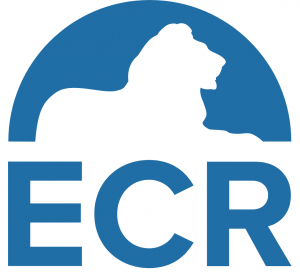 An important RNH project is ‘Europe of the Victims: Remembering Communism’, organised jointly with ECR, European Conservatives and Reformists (formerly ACRE and AECR). The first event in this project was a lecture at the University of Iceland by Danish Professor Bent Jensen who spoke 27 February 2012 about Nordic communists and their relationship with Moscow. Dr. Gudni Th. Johannesson, president of the History Association, chaired the meeting. Next, RNH hosted a lecture at the University of Iceland Monday 10 September 2012, by Danish Professor Niels Erik Rosenfeldt, an internationally acknowledged expert on the communist movement, on the secret operations of Comintern (1919–1943). Professor Rosenfeldt recently published a carefully researched work in two volumes on Stalin’s secret power apparatus. Bjorn Bjarnason, former Minister of Justice, chaired the meeting.
An important RNH project is ‘Europe of the Victims: Remembering Communism’, organised jointly with ECR, European Conservatives and Reformists (formerly ACRE and AECR). The first event in this project was a lecture at the University of Iceland by Danish Professor Bent Jensen who spoke 27 February 2012 about Nordic communists and their relationship with Moscow. Dr. Gudni Th. Johannesson, president of the History Association, chaired the meeting. Next, RNH hosted a lecture at the University of Iceland Monday 10 September 2012, by Danish Professor Niels Erik Rosenfeldt, an internationally acknowledged expert on the communist movement, on the secret operations of Comintern (1919–1943). Professor Rosenfeldt recently published a carefully researched work in two volumes on Stalin’s secret power apparatus. Bjorn Bjarnason, former Minister of Justice, chaired the meeting. One of the most important events in this project was an international conference at the University of Iceland on Saturday 22 September 2012. Speakers were Professor Stéphane Courtois, the French editor of The Black Book of Communism and one of its main authors, Anna Funder, author of Stasiland, Dr. Roman Joch, adviser to the Czech Prime Minister, Professor Oystein Sorensen, Oslo University, Professor Hannes H. Gissurarson, University of Iceland, author of a recent book on Icelandic communists from 1918 to 1998, and Professor Thor Whitehead, University of Iceland, author of a recent book about Icelandic communists and their use of violence in the 1920s and 1930s. The meetings were chaired by television host Egill Helgason, and writers Jakob F. Asgeirsson and Ragnhildur Kolka. More information on the programme participants is available here. Professor Courtois appeared on a television show on current affairs which can be watched here, and Ms. Funder was interviewed in a weekly television programme on literature which can be watched here.
One of the most important events in this project was an international conference at the University of Iceland on Saturday 22 September 2012. Speakers were Professor Stéphane Courtois, the French editor of The Black Book of Communism and one of its main authors, Anna Funder, author of Stasiland, Dr. Roman Joch, adviser to the Czech Prime Minister, Professor Oystein Sorensen, Oslo University, Professor Hannes H. Gissurarson, University of Iceland, author of a recent book on Icelandic communists from 1918 to 1998, and Professor Thor Whitehead, University of Iceland, author of a recent book about Icelandic communists and their use of violence in the 1920s and 1930s. The meetings were chaired by television host Egill Helgason, and writers Jakob F. Asgeirsson and Ragnhildur Kolka. More information on the programme participants is available here. Professor Courtois appeared on a television show on current affairs which can be watched here, and Ms. Funder was interviewed in a weekly television programme on literature which can be watched here.One of the speakers at the conference, Professor Oystein Sorensen, also gave a talk 21 September 2012 at a meeting co-sponsored by RNH and Vardberg at the University of Iceland on ‘Anders Breivik’s Totalitarian Mindset’, discussing the notorious Norwegian mass killer. Bjorn Bjarnason, former Minister of Justice, chaired the meeting. Another conference speaker, Ms. Anna Funder, gave a talk 24 September at a meeting held by the Vigdis Finnbogadottir Institute of foreign languages at the University of Iceland on her new novel, All That I Am. The novel is about dissidents in Nazi Germany and their fates. Martin Regal, Professor of English, chaired the meeting.
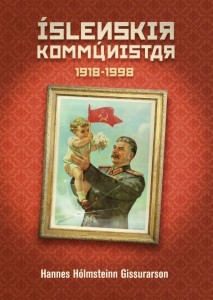 The sixth event in the project was a lecture 2 November 2012, in which Professor Hannes H. Gissurarson defended Jung Chang and Jon Halliday, authors of a best-selling biography of Chinese Communist Leader Mao, against harsh criticisms which have in Iceland been directed against their work by left-wing intellectuals. While the lecture formed a part of the RNH-AECR project, it was sponsored by the Confucius Institute at the University of Iceland whose director, Magnus Bjornsson, chaired the meeting. In 2011–12, Gissurarson also published papers responding to the critics of his 2011 history of Icelandic communism.
The sixth event in the project was a lecture 2 November 2012, in which Professor Hannes H. Gissurarson defended Jung Chang and Jon Halliday, authors of a best-selling biography of Chinese Communist Leader Mao, against harsh criticisms which have in Iceland been directed against their work by left-wing intellectuals. While the lecture formed a part of the RNH-AECR project, it was sponsored by the Confucius Institute at the University of Iceland whose director, Magnus Bjornsson, chaired the meeting. In 2011–12, Gissurarson also published papers responding to the critics of his 2011 history of Icelandic communism.The seventh event in the project was the participation by Professor Hannes H. Gissurarson in a seminar in Warsaw 14–15 May 2013 on memories of genocide. The seminar was organised by the Platform of European Memory and Conscience, PEMC, in cooperation with the Warsaw Rising Museum, MPW, The Polish Institute of National Remembrance, IPN, and the Czech Institute for the study of totalitarian regimes, USTR.
This joint RNH-ACRE project continued on 23 August 2013 with an eighth event. This very day in 1939 Hitler and Stalin made the non-aggression pact which started the war in Europe, at the same time as the two dictators divided up between themselves Central and Eastern Europe. Now 23 August has been designated by the European Parliament as a Europe-wide Day of Remembrance for the victims of all totalitarian and authoritarian regimes. This day in 2013 a photo exhibition on ‘World Communism and Iceland’ was opened at the National Library of Iceland. The photos were selected from Hannes H. Gissurarson’s 2011 book on Icelandic Communists 1918–1998. On this occasion, Dr. Mart Nutt, an historian and a member of the Estonian parliament, and Dr. Pawel Ukielski, deputy director of the Warsaw Rising Museum, gave papers to a crowded meeting hall at the National Library. Gissurarson chaired the meeting, which was co-sponsored by the National Library of Iceland, the Institute of International Affairs at the University of Iceland and Vardberg, the Atlantic Alliance. The two visiting lecturers, Nutt and Ukielski, were both interviewed in Icelandic newspapers and on television. After the meeting, Dr. Nutt gave a miniature Estonian flag to David Oddsson, former Prime Minister, as precisely forty years have passed since Oddsson translated a book by Swedish-Estonian writer Andres Küng into Icelandic, Estonia. Small Nation Under Foreign Yoke (Eistland. Smathjod undir oki erlends valds). As Prime Minister in the summer of 1991, Oddsson led the Icelandic initiative to renew the recognition of Estonia as an independent state.
The photo exhibition at the National Library closed with a lecture on Monday 16 September 2013, the ninth event in the project. The lecture was given by historian Dr. Andreja Zver from Slovenia who spoke about the necessity to remember victims of totalitarianism. Illugi Gunnarsson, Minister of Culture and Education, chaired the meeting. On this occasion, Professor Hannes H. Gissurarson handed over to the Manuscripts Section of the National Library many interesting Comintern documents that his colleague, Professor Arnor Hannibalsson, had collected in Moscow and given to Gissurarson to analyse when his own health failed.
The tenth event in the project was that Dr. Yaron Brook, director of the Ayn Rand Institute in California, spoke 1 November 2013 on the occasion of the publication of Ayn Rand’s novel, We the Living, which is based on the author’s experience of totalitarian oppression in Russia in the early years of communist rule. This marked the beginning of the cooperation between RNH and the Icelandic Book Club, AB (Almenna bokafelagid), on republishing anti-totalitarian works which had made an impact in the Icelandic battle of ideas.
The eleventh event in the project was that Professor Hannes H. Gissurarson gave a presentation about it at a meeting of the Platform of European Memory and Conscience, PEMC, in the Hague 12 November 2013. On the same occasion, RNH formally became a member of the Platform. The twelfth event was the participation by Gissurarson in a PEMC conference on ‘The Legacy of Totalitarianism’ in Prague 12–13 June 2014 where the leader of the Crimean Tatars, Mustafa Dzhemilev, received a prize. The thirteenth event was the participation by Gissurarson in a PEMC seminar on ‘Justice for the Victims of Communism’ in Prague 29 July 2014.

National Librarian Ingibjorg Steinunn Sverrisdottir receives the books donation from Professor Gissurarson. Photo: Olafur Engilbertsson.
Professor Hannes H. Gissurarson read a paper 16 August 2014 to the 28th Congress of Nordic Historians in Joensuu in Finland on two personal dramas which touched upon each other in the Age of Totalitarianism. This was the fourteenth event in the project on “Europe of the Victims”. On the Europe-wide Day of Remembrance for the victims of all totalitarian and authoritarian regimes, 23 August 2014, RNH donated several books on totalitarianism to Iceland’s National Library, including the report by a commission on communist and Nazi repression in Estonia since the 1940 Soviet occupation and a two-volume history of Denmark during the Cold War by Professor Bent Jensen. At the annual meeting of the Platform of European Memory and Conscience 4–5 November 2014 in Brussels, Gissurarson gave a short talk on the joint RNH-ACRE project and the planned republication of books in Icelandic against the totalitarian threat. The seventeenth event in the project was a lecture given by Gissurarson 28 April 2015 on the Icelandic communist movement at Tartu University, followed by another lecture on the same topic 29 April 2015 at the Estonian Parliament in Tallinn.
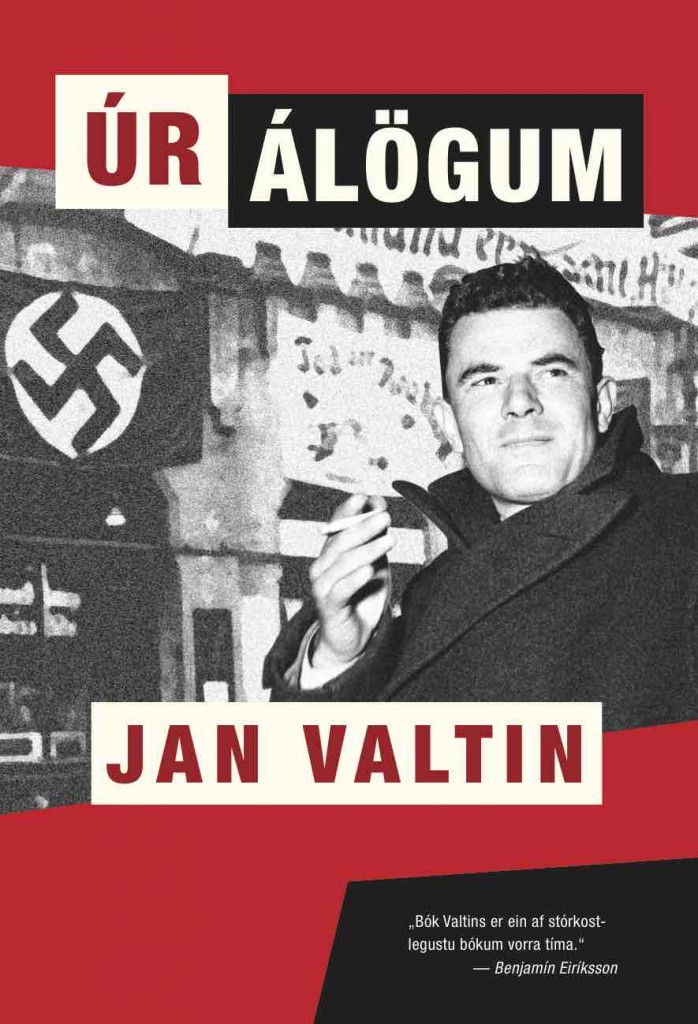 The next three events in the research project were the republication in 2015, online and in a limited number of copies, of three works against totalitarianism, translated into Icelandic in the intellectual debate, or even battle of ideas, of the past between supporters of democracy and totalitarians: Articles on Communism by Bertrand Russell; Women in Stalin’s Prison Camps by Elinor Lipper and Aino Kuusinen and Out of the Night by Jan Valtin, whose real name was Richard Krebs. The three works were all introduced by Professor Hannes H. Gissurarson and brought out by AB, the Public Book Club. The 22nd event in the project was the participation of Gissurarson in the annual meeting of the Platform of European Memory and Conscience in Wroclaw in Poland 18–19 November 2015.
The next three events in the research project were the republication in 2015, online and in a limited number of copies, of three works against totalitarianism, translated into Icelandic in the intellectual debate, or even battle of ideas, of the past between supporters of democracy and totalitarians: Articles on Communism by Bertrand Russell; Women in Stalin’s Prison Camps by Elinor Lipper and Aino Kuusinen and Out of the Night by Jan Valtin, whose real name was Richard Krebs. The three works were all introduced by Professor Hannes H. Gissurarson and brought out by AB, the Public Book Club. The 22nd event in the project was the participation of Gissurarson in the annual meeting of the Platform of European Memory and Conscience in Wroclaw in Poland 18–19 November 2015.The next two events in the project were a lecture 20 November at the University of Iceland by US investor Bill Browder on “Putin’s Russia”, co-sponsored by the Institute of International Affairs at the University of Iceland, and the publication by AB of the Icelandic translation of Browder’s book, Red Notice, about abuse of power in Russia, especially the notorious Magnitsky case. The 25h event in the project was a paper in business magazine Visbending by Gissurarson on the financial support from Moscow to the Icelandic communist movement: the conclusion was that in 1955–1970 it amounted to about $3 million. A book by Icelandic journalist Bogi Arason, The Child who Became a Despot, published by AB, was the 26th event in the project: It is about the childhood and formative years of some of the 20th Century’s worst despots, including Stalin, Hitler and Mao.
In 2016, several events took place in the RNH-ACRE project. In February, the famous secret speech about Stalin’s crimes and misdeeds given by Khruschev sixty years ago was republished by AB, with, as an addendum, Lenin’s political testament which warned against Stalin. In his introduction, Professor Hannes H. Gissurarson described the great significance of those two documents in the struggle against the well-funded and well-organised Icelandic Stalinists. Gissurarson also attended a conference on totalitarianism, deportation and emigration, held by the Platform of European Memory and Conscience in Viljandi in Estonia 28–30 June 2016. He gave a paper on two German emigrants in Iceland before the War whose strange stories became intertwined in unexpected ways. The 29th event in the project was the republication by AB in July 2016, 8o years after the Spanish Civil War started, of Valentín González’ book, El campesino: Life and Death in the Soviet Union (1952). González had been a general in the Republican army and went after its defeat to the Soviet Union where he became a Gulag prisoner, miraculously escaping after an earthquake. In his introduction, Gissurarson discussed Western intellectuals and the Spanish Civil War.
The three next events in the project took place on 26 August 2016 when 25 years had passed since the re-recognition by Iceland of the independence and sovereignty of the three Baltic states. AB, in cooperation with RNH, republished two books on communist oppression in the Baltic states, Baltic Eclipse by Professor Ants Oras (1955) and Estonia. A Study in Imperialism by Swedish journalist Andres Küng (1973). Former Prime Minister David Oddsson who as a young man translated Küng’s book and MEP Tunne Kelam, a veteran of the Estonian struggle for independence, addressed a reception on the occasion of the publication, co-sponsored by AB and the honorary consuls in Iceland of the three Baltic republics.
 The 33rd event in the project was that Professor Hannes H. Gissurarson attended the annual meeting of the Platform of European Memory and Conscience in Kiev in Ukraine 24–25 November 2016 and gave a talk on the many books republished in 2016 as a part of the RNH-ACRE project. On 25 December 2016, a quarter of a century after the demise of the Soviet Union, an early account of the Gulag, by Ingrian priest Aatami Kuortti, Service, Servitude, Escape (1938) was republished by AB. In 1930, Kuortti escaped from the Gulag and settled in Finland. In his introduction, Gissurarson discussed the tragic fate of small nations that have largely disappeared, such as the Ingrians.
The 33rd event in the project was that Professor Hannes H. Gissurarson attended the annual meeting of the Platform of European Memory and Conscience in Kiev in Ukraine 24–25 November 2016 and gave a talk on the many books republished in 2016 as a part of the RNH-ACRE project. On 25 December 2016, a quarter of a century after the demise of the Soviet Union, an early account of the Gulag, by Ingrian priest Aatami Kuortti, Service, Servitude, Escape (1938) was republished by AB. In 1930, Kuortti escaped from the Gulag and settled in Finland. In his introduction, Gissurarson discussed the tragic fate of small nations that have largely disappeared, such as the Ingrians.On the 100th anniversary of the Bolshevik Revolution, 7 November 2017, AB, in cooperation with RNH, republished three significant works in the struggle against communism, Soviet Myth and Reality by Hungarian-English author Arthur Koestler (1945), I Chose Freedom by Ukrainian refugee Victor Kravchenko (1950) and Nightmare of the Innocents by Norwegian fisherman Otto Larsen (1956). The books were all introduced by Professor Hannes H. Gissurarson. The 38th event in the project was that Gissurarson attended the annual meeting of the Platform of European Memory and Conscience in Vilnius in Lithuania 28–30 November 2017 and gave a talk on the works recently republished by AB. The 39th event in the project was that in late 2017 Brussels think tank New Direction published a 61 pp. report by H. Gissurarson, Voices of the Victims: Towards a Historiography of Anti-Communist Literature where he discussed the historical record of communism and some of the most important literary works about it, prison memories, novels, historical treatises and biographies.
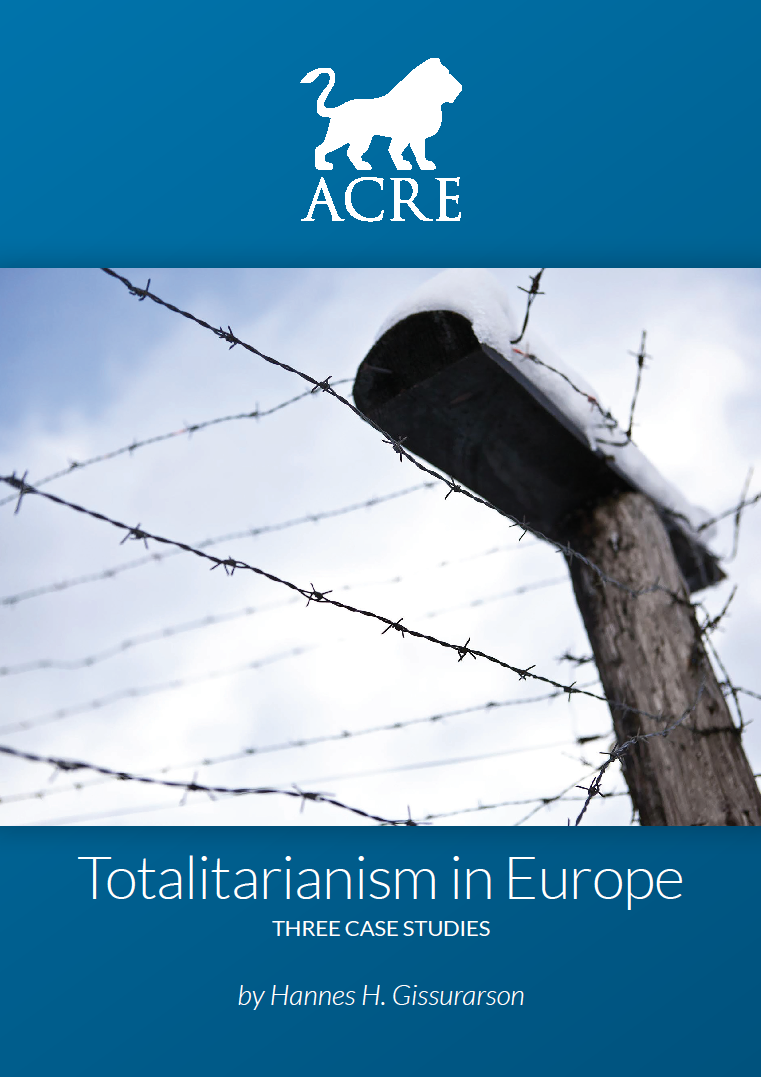 In early 2018, the 40th event in the project took place when ACRE in Brussels published a monograph by Professor Hannes H. Gissurarson, Totalitarianism in Europe: Three Case Studies. The studies were of Elinor Lipper, a once-prominent figure in the intellectual struggle against communism; of the strange fate of two German expatriates in Iceland, a Nazi who became a communist, and a Jewess who became an Icelander; and of the life and works of Halldor K. Laxness, Iceland’s only Nobel Laureate in Literature, and for a long time an ardent Stalinist. The monograph was discussed at a seminar in Reykjavik on 26 April 2018, where Gissurarson gave a summary of it and Dr. Dalibor Rohac, European Affairs Expert at the American Enterprise Institute, commented on it. The seminar was co-sponsored by AB and the Institute of Politics and Public Administration at the University of Iceland and chaired by historian Bessi Johannsdottir.
In early 2018, the 40th event in the project took place when ACRE in Brussels published a monograph by Professor Hannes H. Gissurarson, Totalitarianism in Europe: Three Case Studies. The studies were of Elinor Lipper, a once-prominent figure in the intellectual struggle against communism; of the strange fate of two German expatriates in Iceland, a Nazi who became a communist, and a Jewess who became an Icelander; and of the life and works of Halldor K. Laxness, Iceland’s only Nobel Laureate in Literature, and for a long time an ardent Stalinist. The monograph was discussed at a seminar in Reykjavik on 26 April 2018, where Gissurarson gave a summary of it and Dr. Dalibor Rohac, European Affairs Expert at the American Enterprise Institute, commented on it. The seminar was co-sponsored by AB and the Institute of Politics and Public Administration at the University of Iceland and chaired by historian Bessi Johannsdottir.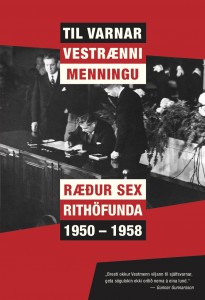 In 2018, three other events in the project took place. The 41st event was a talk given by Gissurarson at an international conference in Tallinn, Estonia, on 23 August 2018, organised by the Estonian Institute of Historical Memory. The 42nd event was a talk given by Gissurarson at a conference in Ljubljana 14 November 2018, preceding the annual meeting of the Platform of European Memory and Conscience in Bled 15 November. On 1 December 2018, the 43rd event in the project was the publication of a collection of six speeches against communism, Til varnar vestraenni menningu (In Defence of Western Civilisation), with a 40 pages Introduction and 70 pages of Notes by Hannes H. Gissurarson. The speeches were given in 1950–58 by prominent Icelandic men of letters, Tomas Gudmundsson, Gunnar Gunnarsson, Kristmann Gudmundsson, Gudmundur G. Hagalin, Sigurdur Einarsson and David Stefansson. The Atlantic Association in Iceland distributed copies of the book to all its members on the occasion of the 70th anniversary of NATO 4 April 2019.
In 2018, three other events in the project took place. The 41st event was a talk given by Gissurarson at an international conference in Tallinn, Estonia, on 23 August 2018, organised by the Estonian Institute of Historical Memory. The 42nd event was a talk given by Gissurarson at a conference in Ljubljana 14 November 2018, preceding the annual meeting of the Platform of European Memory and Conscience in Bled 15 November. On 1 December 2018, the 43rd event in the project was the publication of a collection of six speeches against communism, Til varnar vestraenni menningu (In Defence of Western Civilisation), with a 40 pages Introduction and 70 pages of Notes by Hannes H. Gissurarson. The speeches were given in 1950–58 by prominent Icelandic men of letters, Tomas Gudmundsson, Gunnar Gunnarsson, Kristmann Gudmundsson, Gudmundur G. Hagalin, Sigurdur Einarsson and David Stefansson. The Atlantic Association in Iceland distributed copies of the book to all its members on the occasion of the 70th anniversary of NATO 4 April 2019.In 2019, a collection of speeches in 1946–1948 by the eminent and influential Norwegian poet Arnulf Øverland was published 4 April, on the NATO anniversary. Two of them were given in Iceland and had quite an impact on public opinion, in favour of NATO membership. The 45th event in the project was a seminar 17 May at the University of Iceland on totalitarianism where Professors Hannes H. Gissurarson and Stefan Snaevarr debated the term and the concept. The seminar was co-sponsored by the Institute of Politics and Public Administration at the University of Iceland and chaired by Professor Olafur Th. Hardarson. The 46th event was Gissurarson’s participation in the annual meeting of the Platform of European Memory and Conscience in Tirana, Albania, on 3–6 November.
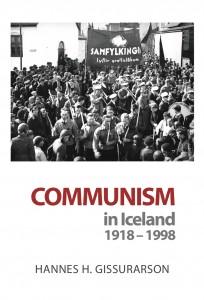 In 2021, two events in the project took place. Gissurarson gave a keynote lecture at the annual meeting of the Platform of European Memory and Conscience in Prague on 11–13 November, about the events of 1991 when the Soviet Empire collapsed. The Politics and Economics Centre at the Social Sciences Research Centre, University of Iceland, published a book in English by Gissurarson, Communism in Iceland, 1918–1998.
In 2021, two events in the project took place. Gissurarson gave a keynote lecture at the annual meeting of the Platform of European Memory and Conscience in Prague on 11–13 November, about the events of 1991 when the Soviet Empire collapsed. The Politics and Economics Centre at the Social Sciences Research Centre, University of Iceland, published a book in English by Gissurarson, Communism in Iceland, 1918–1998.In 2024, Gissurarson attended the annual meeting of the Platform of European Memory and Conscience in Vilnius on 15–17 May. A conference on the crimes of totalitarianism was held jointly with the annual meeting.
The papers delivered in the lecture series, by Bent Jensen onwards, will hopefully be published, in a book or a magazine. The work still continues with making The Black Book of Communism, published in a 2009 Icelandic translation, available online. The plan is to open a website with it and other online books on totalitarianism, Nazism and communism—including the aforementioned books and some forthcoming ones, such as The God That Failed by Arthur Koestler, André Gide and others, Darkness at Noon by Arthur Koestler and Under Two Dictators: Prisoner of Stalin and Hitler by Margarete Buber-Neumann.
- Green Capitalism
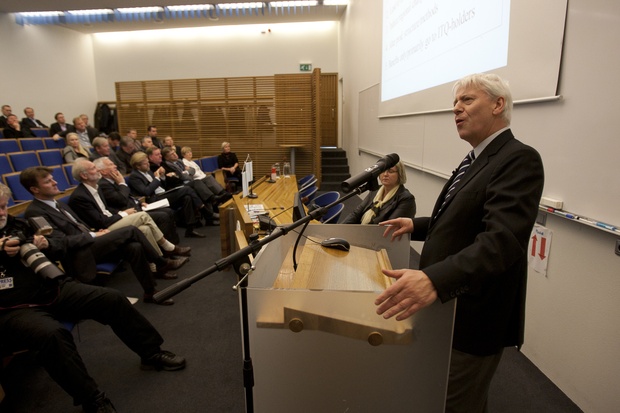
Professor Ragnar Arnason speaks at the fisheries conference 6 October 2012. Asta Moller in the chair. Photo: Haraldur Gudjonsson.
 An important part of the project jointly organised by RNH and ACRE, the Alliance of Conservatives and Reformists in Europe, on “Europe, Iceland and the Future of Capitalism” is the exploration of reforms of institutions governing the utilisation of natural resources and protecting the environment. How can “green capitalism” be designed and implemented?
An important part of the project jointly organised by RNH and ACRE, the Alliance of Conservatives and Reformists in Europe, on “Europe, Iceland and the Future of Capitalism” is the exploration of reforms of institutions governing the utilisation of natural resources and protecting the environment. How can “green capitalism” be designed and implemented?The first event on this theme was a lecture 27 July 2012 by British science writer Dr. Matt Ridley where he gave an outline of his argument in the best-selling The Rational Optimist. Another important event on this theme hosted by RNH in 2012 was an international conference on “Fisheries: Sustainable and Profitable” 6 October 2012. Speakers included Arni Mathiesen, director of the fisheries section at FAO and former Icelandic Minister of the Fisheries, Dr. Gunnar Haraldsson, chief fisheries expert at the OECD, Michael Arbuckle, chief fisheries expert at the World Bank, Professors Thrainn Eggertsson, Ragnar Arnason, Asgeir Jonsson, Birgir Thor Runolfsson and Helgi A. Gretarsson, all of the University of Iceland in Reykjavik, Professor Michael De Alessi from Stanford University and Professor Rognvaldur Hannesson of the Norwegian School of Economics and Business in Bergen. Editor Brian Carney from the Wall Street Journal Europe did a summing up. More information on the speakers is available here.
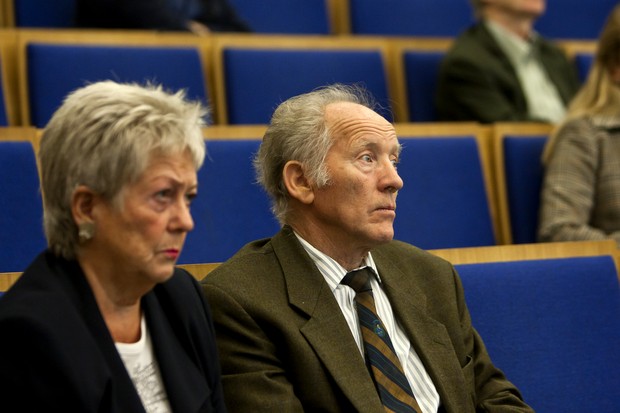
Leading fishing firm owner Gudrun Larusdottir, with her husband, Agust Sigurdsson. Photo: Haraldur Gudjonsson.
The next event in this part of the NRH-AECR project, the exploration of institutions of green capitalism, was a lecture Professor Hannes H. Gissurarson gave at the University of Iceland 26 October 2013 on what “Political Economy can tell us about the Money Smell”—referring to the odour emitted from fish smelting plants in Iceland often called “money smell”. Professor Gissurarson analysed air pollution such as “money smell” in terms of both Pigou’s and Coase’s theories and discussed different remedies.
Professor Gissurarson directs a research project at the University of Iceland on green capitalism, in co-operation with the Brazilian Instituto Millenium, based in Rio de Janeiro. In connection with the Rio+20 international conference on the environment, RNH and the California-based Reason Foundation held an informal seminar in Rio de Janeiro, 19 June 2012, with talks by Julian Morris and Hannes H. Gissurarson. In connection with the seminar, there was a reception on Iceland’s national holiday, 17 June, attended by some Icelanders, including Arni Mathiesen.
In 2013, Professor Hannes H. Gissurarson participated in the Mont Pelerin Society regional conference on liberty and evolution on the Galapagos Islands 22–29 June, as a part of the research project on green capitalism. He chaired a session on liberalism and Darwinism.
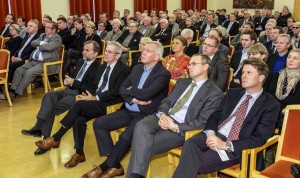
From left, first row: Kristjan Loftsson, Ralph Townsend, Hannes H. Gissurarson, Dadi M. Kristofersson, Gunnar Haraldsson. Photo: Omar Oskarsson.
On 14 October 2013, a conference to honour late Professor Arni Vilhjalmsson, both an academic and an entrepreneur in the Icelandic fisheries, was held at the University of Iceland, with Ralph Townsend, Professor of Fisheries Economics at the University of Main, giving the keynote speech. Other main speakers were Professors Ragnar Arnason and Hannes H. Gissurarson of the University of Iceland and Dr. Gunnar Haraldsson, director of the Economic Research Institute at the University of Iceland. The theme of the conference was “The System of Individual Transferable Quotas and the Demand for a Rent Resource Tax”.
 In mid-October 2014 AB, the Public Book Club, published Matt Ridley’s book, The Rational Optimist, which in Icelandic is called Heimur batnandi fer, in a translation by Elin Gudmundsdottir, and edited by Hannes H. Gissurarson There, Ridley discusses various environmental problems and their possible solutions. Professor Thrainn Eggertsson made the following comment: “In his book Matt Ridley, writer, scientist, og former Economist senior editor, has rearranged ideas from Adam Smith and Charles Darwin in order to explain why man has done so much better than other animals on earth. How division of labour and exchanges between unrelated individuals have enabled us to utilise the knowledge of millions of people and create goods such as cars, computers and drugs, which none of use could have invented or produced on our own. Ridley also discusses mankind’s strong and dark pessimistic streak and some fashionable doomsday scenarios, formerly linked to religion, but now also to natural sciences. The author uses a wide basis of sources, has a superb command of English, peppered with a rich sense of humour, and he draws on an amazing wealth of knowledge on evolution of life on earth and the history of human beings and on new research in the social and natural sciences.”
In mid-October 2014 AB, the Public Book Club, published Matt Ridley’s book, The Rational Optimist, which in Icelandic is called Heimur batnandi fer, in a translation by Elin Gudmundsdottir, and edited by Hannes H. Gissurarson There, Ridley discusses various environmental problems and their possible solutions. Professor Thrainn Eggertsson made the following comment: “In his book Matt Ridley, writer, scientist, og former Economist senior editor, has rearranged ideas from Adam Smith and Charles Darwin in order to explain why man has done so much better than other animals on earth. How division of labour and exchanges between unrelated individuals have enabled us to utilise the knowledge of millions of people and create goods such as cars, computers and drugs, which none of use could have invented or produced on our own. Ridley also discusses mankind’s strong and dark pessimistic streak and some fashionable doomsday scenarios, formerly linked to religion, but now also to natural sciences. The author uses a wide basis of sources, has a superb command of English, peppered with a rich sense of humour, and he draws on an amazing wealth of knowledge on evolution of life on earth and the history of human beings and on new research in the social and natural sciences.”On 24 October 2014, RNH held a seminar on resource rent tax, wealth tax and income distribution. Professor Corbett Grainger from the University of Wisconsin explained why a system of individual, transferable quotas was a better escape from “the tragedy of the commons” in fisheries than a resource rent tax. Professors Ragnar Arnason and Hannes H. Gissurarson explained why the case for a special confiscatory wealth tax was often based on a faulty methodology of measuring income distribution and morally assessing it. 30 October 2014, at a seminar jointly organised by RNH, AB Publishing and the finance company Gamma, Matt Ridley described the most important findings of his book, The Rational Optimist, while Economics Professor Thrainn Eggertsson discussed present trends in the information society and Associate Economics Professor Birgir Thor Runolfsson analysed one of Ridley’s examples of an institution leading to both sustainability and profitability, the Icelandic system of ITQs, individual transferable quotas, in the fisheries.
On 8 October 2015, RNH participated in a conference held by the School of Social Sciences at the University of Iceland in honour of Professor Rognvaldur Hannesson, an Icelandic economist living in Norway and a world authority on resource economics, who had recently published a trenchant critique of Ecofundamentalism. Dr. Dadi Mar Kristofersson, Head of the School of Social Sciences, and Professor Tor Einarsson, Chairman of the Economics Faculty, introduced Professor Hannesson who gave a keynote lecture, on which Julian Morris of Reason Foundation and Professor Bengt Kriström subsequently commented. In the evening, Illugi Gunnarsson, Minister of Education and Culture, gave a dinner in honour of Professor Rognvaldsson. In late 2015, the University of Iceland Press, supported by RNH, published a book by Professor Hannes H. Gissurarson, The Icelandic Fisheries: Sustainable and Profitable, where he described the Icelandic system of Individual Transferable Quotas, ITQs, in the fisheries and argued that the quotas should initially be allocated on the basis of catch history. The book is also available online. In 2016 Professor Gissurarson published a review of Professor Hannesson’s book in the Journal of Economics Library.
In 2016, Professor Hannes H. Gissurarson gave several papers on a sustainable, profitable and equitable system in the fisheries, using the Icelandic ITQ system as a model: In Lima in Peru at the Fisheries Association 21 January and at the Ministry of Resources and Economics 26 January, and in Florence in Italy at an IEA seminar 8 September. On 29 August 2016, RNH participated in an international conference at the University of Iceland on rights allocation in the fisheries, and the idea of auctioning off quotas. The keynote papers were given by Professor Gary Libecap of the University of California at Santa Barbara and Professor Ragnar Arnason of the University of Iceland, followed with a panel discussion of Economics Professor Charles Plott, an international authority on auctions, Dr. Tryggvi Thor Herbertsson, Politics Professor Hannes H. Gissurarson and Associate Law Professor Helgi A. Gretarsson. Libecap and Arnason agreed that the most natural way of initially allocating fishing quotas was by “grandfathering” or catch history. Professor Plott pointed out that there was no need for auctions in the Icelandic fisheries, as there was a tolerably efficient system in place. Professor Gissurarson pointed out that the only right of which those who did not hold quotas had been deprived, was the right to harvest fish at zero profit, as the fisheries model of H. Scott Gordon had shown.
In October 2017, AB, the Public Book Club, in cooperation with RNH, published Progress by Swedish historian Johan Norberg (Framfarir in Icelandic) who argues that many environmental problems can be solved by new technology created by capitalism. Therefore, the environment and capitalism should be regarded as allies, not enemies. Norberg launched the Icelandic translation in a lecture at the University of Iceland 23 October. At the end of 2017, the Brussels think tank New Direction published a 69 pp. report, Green Capitalism, by RNH Academic Director Professor Hannes H. Gissurarson. On the basis of his analysis, he makes a lot of radical proposals, for example to start using DDT against malaria, adopt a system of individual transferable quotas in European fisheries, revoke the ban of harvesting those whale stocks which are plentiful, for example the fin and the minke whales in Icelandic waters, remove robust elephant stocks from the CITES list of endangered species and develop private property rights in them, held by local communities, and try and save the African rhino stocks—which in fact are endangered—by also developing property rights in them, held by local communities, wildlife park owners or individual farmers.
Tabula Gratulatoria – Ragnar Árnason
Coming Up
Research Areas
Roots
Blogs
Archives
- November 2025
- October 2025
- September 2025
- August 2025
- July 2025
- May 2025
- March 2025
- November 2024
- October 2024
- September 2024
- July 2024
- June 2024
- May 2024
- April 2024
- March 2024
- November 2023
- September 2023
- June 2023
- May 2023
- January 2023
- December 2022
- November 2022
- October 2022
- September 2022
- August 2022
- July 2022
- January 2022
- December 2021
- November 2021
- October 2021
- September 2021
- June 2021
- April 2021
- March 2021
- December 2020
- July 2020
- January 2020
- December 2019
- November 2019
- September 2019
- August 2019
- June 2019
- May 2019
- April 2019
- March 2019
- December 2018
- November 2018
- October 2018
- September 2018
- August 2018
- July 2018
- June 2018
- May 2018
- April 2018
- March 2018
- January 2018
- December 2017
- November 2017
- October 2017
- September 2017
- August 2017
- June 2017
- May 2017
- April 2017
- March 2017
- February 2017
- January 2017
- December 2016
- November 2016
- October 2016
- September 2016
- August 2016
- July 2016
- June 2016
- May 2016
- April 2016
- March 2016
- February 2016
- January 2016
- December 2015
- November 2015
- October 2015
- September 2015
- August 2015
- July 2015
- June 2015
- April 2015
- January 2015
- December 2014
- November 2014
- October 2014
- September 2014
- August 2014
- July 2014
- June 2014
- May 2014
- April 2014
- March 2014
- February 2014
- January 2014
- November 2013
- October 2013
- September 2013
- August 2013
- July 2013
- June 2013
- May 2013
- April 2013
- March 2013
- February 2013
- January 2013
- December 2012
- November 2012
- October 2012
- September 2012
- August 2012
- July 2012
- June 2012
- February 2012
- November 2011
- August 2009
-
Icelandic Research Centre on Innovation and Economic Growth
Fákafeni 11
108 Reykjavík
Sími 615 11 22RNH á YouTube


